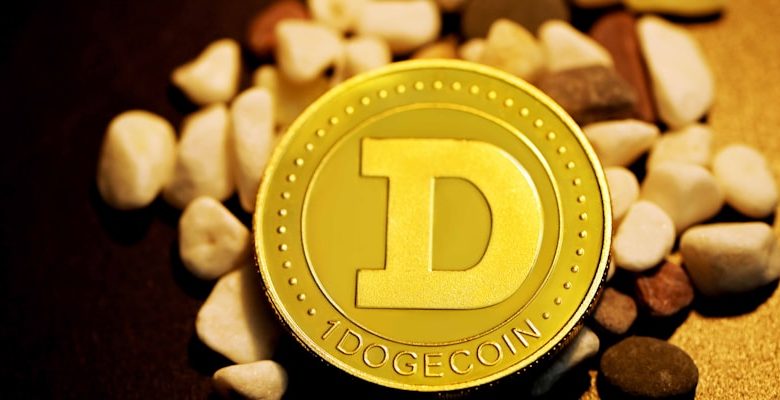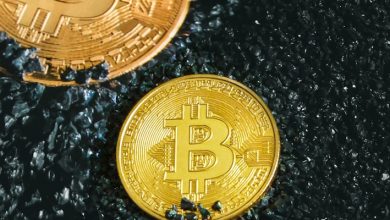Exploring DeFi: The Rise of Decentralized Finance

- Understanding the Basics of DeFi and How It Works
- The Evolution of Traditional Finance to Decentralized Finance
- Key Benefits of DeFi and How It is Disrupting the Financial Industry
- Exploring the Various DeFi Platforms and Their Unique Features
- Challenges and Risks Associated with DeFi Investments
- The Future of Decentralized Finance: Trends and Predictions
Understanding the Basics of DeFi and How It Works
DeFi, short for Decentralized Finance, is a rapidly growing sector within the cryptocurrency industry. It refers to the use of blockchain technology and smart contracts to provide financial services without the need for traditional intermediaries such as banks or brokerages. DeFi platforms allow users to lend, borrow, trade, and invest in a peer-to-peer manner, directly from their digital wallets.
One of the key concepts behind DeFi is decentralization, which means that there is no central authority controlling the system. Instead, transactions are recorded on a public ledger, known as a blockchain, which is maintained by a network of computers spread around the world. This eliminates the need for trust in a single entity and provides greater transparency and security for users.
To participate in DeFi, users typically need to connect their digital wallets to a decentralized application (DApp) that runs on a blockchain platform such as Ethereum. They can then interact with various DeFi protocols to access different financial services. These protocols are often open-source, meaning that anyone can inspect the code and verify how they work.
One of the most popular use cases of DeFi is decentralized lending and borrowing. Users can lend out their digital assets to earn interest or borrow assets by providing collateral. This process is facilitated by smart contracts, which automatically enforce the terms of the agreement without the need for a middleman. This allows for more efficient and cost-effective financial transactions.
Overall, DeFi is revolutionizing the way financial services are accessed and provided. It offers greater financial inclusion, lower barriers to entry, and increased efficiency compared to traditional finance. As the ecosystem continues to evolve and innovate, it is likely to play an increasingly important role in the global economy.
The Evolution of Traditional Finance to Decentralized Finance
Traditional finance has long been dominated by centralized institutions such as banks, investment firms, and insurance companies. However, with the rise of decentralized finance (DeFi), we are witnessing a significant shift in the way financial services are conducted. DeFi leverages blockchain technology to create a decentralized ecosystem where individuals can access financial services without the need for intermediaries. This evolution from traditional finance to DeFi is reshaping the financial landscape and providing new opportunities for individuals to participate in the global economy.
One of the key differences between traditional finance and DeFi is the level of control and transparency it offers to users. In traditional finance, individuals must rely on centralized institutions to facilitate transactions, manage their assets, and provide financial services. This centralized model can be slow, expensive, and prone to manipulation. On the other hand, DeFi platforms operate on open-source protocols that are accessible to anyone with an internet connection. This level of transparency allows users to verify transactions, track their assets, and participate in the governance of the platform.
Another important aspect of the evolution from traditional finance to DeFi is the concept of programmable money. In traditional finance, money is static and can only be used for its intended purpose. However, with DeFi, money becomes programmable through smart contracts. Smart contracts are self-executing contracts with the terms of the agreement directly written into lines of code. This automation allows for the seamless execution of financial transactions, such as lending, borrowing, and trading, without the need for intermediaries.
Furthermore, DeFi is also revolutionizing the concept of financial inclusion by providing access to financial services for individuals who are underserved or excluded from the traditional banking system. In many parts of the world, people do not have access to basic financial services such as banking, lending, and insurance. DeFi platforms are breaking down these barriers by providing borderless and permissionless access to financial services. This inclusivity is empowering individuals to take control of their finances and participate in the global economy on their terms.
Overall, the evolution from traditional finance to DeFi represents a fundamental shift in the way financial services are accessed, managed, and executed. DeFi offers a more transparent, efficient, and inclusive alternative to traditional finance, empowering individuals to take control of their financial future. As DeFi continues to grow and evolve, we can expect to see even greater innovation and disruption in the financial industry, transforming the way we think about money and finance.
Key Benefits of DeFi and How It is Disrupting the Financial Industry
Decentralized Finance (DeFi) is revolutionizing the financial industry by offering key benefits that traditional centralized systems cannot match. One of the main advantages of DeFi is its ability to provide financial services without the need for intermediaries such as banks or brokers. This peer-to-peer model allows for direct interaction between users, reducing costs and increasing efficiency.
Another key benefit of DeFi is its transparency and security. Transactions on decentralized platforms are recorded on a public blockchain, making them immutable and tamper-proof. This level of transparency helps to build trust among users and eliminates the risk of fraud or manipulation.
Furthermore, DeFi is accessible to anyone with an internet connection, regardless of their location or background. This inclusivity opens up a world of financial opportunities for individuals who may have been excluded from traditional banking systems.
Overall, DeFi is disrupting the financial industry by democratizing access to financial services, increasing transparency, and reducing costs. As the popularity of DeFi continues to grow, it has the potential to revolutionize the way we think about finance and empower individuals to take control of their own financial future.
Exploring the Various DeFi Platforms and Their Unique Features
When exploring the world of decentralized finance (DeFi), it is essential to understand the various platforms available and their unique features. These platforms offer innovative solutions for users to engage in financial activities without relying on traditional centralized institutions. Let’s delve into some of the most popular DeFi platforms and what sets them apart:
- Uniswap: Uniswap is a decentralized exchange that allows users to trade cryptocurrencies directly from their wallets. It uses an automated market maker system, which eliminates the need for order books and allows for seamless trading.
- Compound: Compound is a lending platform that enables users to lend out their cryptocurrencies and earn interest on their holdings. Users can also borrow assets by providing collateral, opening up opportunities for leveraging.
- Aave: Aave is a decentralized lending platform that offers users the ability to lend, borrow, and earn interest on a wide range of cryptocurrencies. It also features unique lending pools and flash loans, allowing for quick and efficient transactions.
- MakerDAO: MakerDAO is a decentralized autonomous organization that issues the stablecoin DAI. Users can generate DAI by locking up collateral in the platform’s smart contracts, creating a stable and decentralized stablecoin.
Each of these DeFi platforms brings something unique to the table, whether it’s automated market making, lending and borrowing capabilities, or stablecoin issuance. By exploring these platforms and their features, users can take advantage of the opportunities presented by the rise of decentralized finance.
Challenges and Risks Associated with DeFi Investments
Investing in decentralized finance (DeFi) can offer lucrative opportunities for those looking to diversify their portfolios and participate in the growing trend of decentralized financial services. However, it is important to be aware of the challenges and risks associated with DeFi investments to make informed decisions and protect your assets.
One of the main challenges of DeFi investments is the inherent complexity of the ecosystem. Unlike traditional financial systems, DeFi operates on blockchain technology and smart contracts, which can be difficult to understand for newcomers. This complexity can lead to mistakes in investment strategies, potentially resulting in financial losses.
Another risk associated with DeFi investments is the lack of regulation in the space. While decentralization is one of the key principles of DeFi, it also means that there is no centralized authority overseeing the activities of participants. This can make DeFi more susceptible to hacks, scams, and other malicious activities, putting investors’ funds at risk.
Furthermore, the fast-paced nature of the DeFi market can also pose a challenge for investors. The rapid development of new projects and protocols can make it difficult to keep up with the latest trends and opportunities. Without thorough research and due diligence, investors may miss out on potential gains or fall victim to fraudulent schemes.
In conclusion, while DeFi investments can offer high rewards, they also come with significant challenges and risks. It is essential for investors to educate themselves about the intricacies of the DeFi ecosystem, conduct thorough research, and exercise caution when participating in decentralized finance. By staying informed and vigilant, investors can navigate the complexities of DeFi and make informed decisions to protect their assets in this ever-evolving landscape.
The Future of Decentralized Finance: Trends and Predictions
The future of decentralized finance (DeFi) looks promising, with several trends and predictions shaping the landscape. One key trend is the continued growth of DeFi platforms, offering various financial services without the need for traditional intermediaries. This trend is driven by the increasing demand for decentralized solutions that provide greater financial inclusion and accessibility to a global audience.
Another trend to watch is the rise of decentralized exchanges (DEXs), which allow users to trade digital assets directly with one another. These platforms are gaining popularity due to their enhanced security and transparency compared to centralized exchanges. As more users become aware of the benefits of DEXs, we can expect to see a further shift towards decentralized trading.
Looking ahead, predictions suggest that DeFi will continue to expand into new areas such as lending, borrowing, and insurance. These developments could revolutionize the traditional financial sector by offering more efficient and cost-effective solutions. With the growing interest and investment in DeFi projects, we can anticipate a wave of innovation and disruption in the financial industry.



